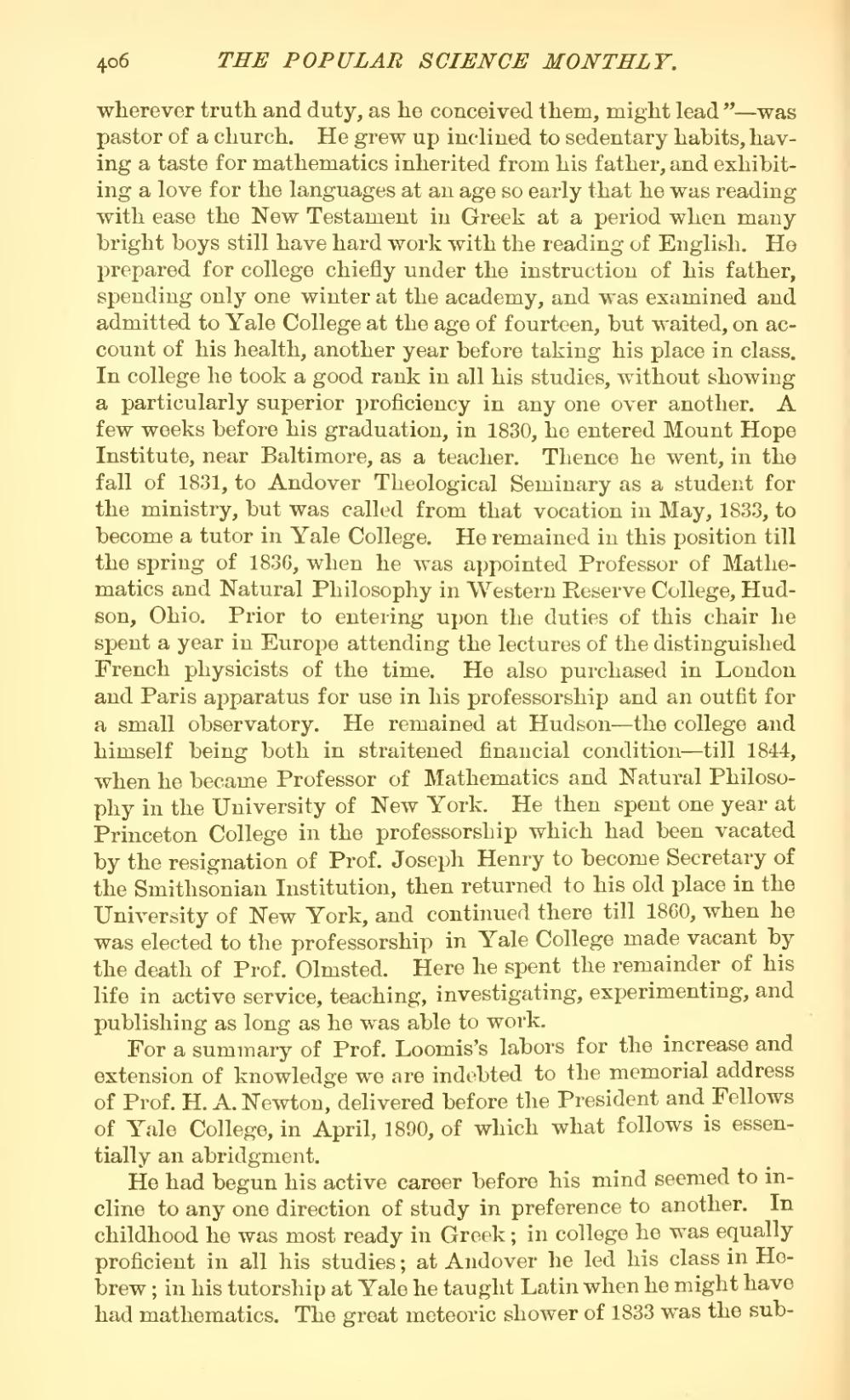wherever truth and duty, as he conceived them, might lead"—was pastor of a church. He grew up inclined to sedentary habits, having a taste for mathematics inherited from his father, and exhibiting a love for the languages at an age so early that he was reading with ease the New Testament in Greek at a period when many bright boys still have hard work with the reading of English. He prepared for college chiefly under the instruction of his father, spending only one winter at the academy, and was examined and admitted to Yale College at the age of fourteen, but waited, on account of his health, another year before taking his place in class. In college he took a good rank in all his studies, without showing a particularly superior proficiency in any one over another. A few weeks before his graduation, in 1830, he entered Mount Hope Institute, near Baltimore, as a teacher. Thence he went, in the fall of 1831, to Andover Theological Seminary as a student for the ministry, but was called from that vocation in May, 1833, to become a tutor in Yale College. He remained in this position till the spring of 1836, when he was appointed Professor of Mathematics and Natural Philosophy in Western Reserve College, Hudson, Ohio. Prior to entering upon the duties of this chair he spent a year in Europe attending the lectures of the distinguished French physicists of the time. He also purchased in London and Paris apparatus for use in his professorship and an outfit for a small observatory. He remained at Hudson—the college and himself being both in straitened financial condition—till 1844, when he became Professor of Mathematics and Natural Philosophy in the University of New York. He then spent one year at Princeton College in the professorship which had been vacated by the resignation of Prof. Joseph Henry to become Secretary of the Smithsonian Institution, then returned to his old place in the University of New York, and continued there till 1860, when he was elected to the professorship in Yale College made vacant by the death of Prof. Olmsted. Here he spent the remainder of his life in active service, teaching, investigating, experimenting, and publishing as long as he was able to work.
For a summary of Prof. Loomis's labors for the increase and extension of knowledge we are indebted to the memorial address of Prof. H. A. Newton, delivered before the President and Fellows of Yale College, in April, 1890, of which what follows is essentially an abridgment.
He had begun his active career before his mind seemed to incline to any one direction of study in preference to another. In childhood he was most ready in Greek; in college he was equally proficient in all his studies; at Andover he led his class in Hebrew; in his tutorship at Yale he taught Latin when he might have had mathematics. The great meteoric shower of 1833 was the sub-
